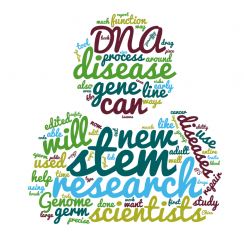Transplanted bone marrow-derived cells reduce recurrent miscarriage in mice

In a study focusing on the role of self-donated (autologous) bone marrow-derived endothelial progenitor cells (EPCs) in placental vascular development, researchers in Japan have discovered that when transplanted into pregnant mice, EPCs can contribute to better blood vessel growth that helps in forming "normalized" placental vascularization. This in turns leads to reduced recurrent miscarriages by providing a healthier fetal environment during gestation.
In a study focusing on the role of self-donated (autologous) bone marrow-derived endothelial progenitor cells (EPCs) in placental vascular development, researchers in Japan have discovered that when transplanted into pregnant mice, EPCs can contribute to better blood vessel growth that helps in forming "normalized" placental vascularization. This in turns leads to reduced recurrent miscarriages by providing a healthier fetal environment during gestation.
"We found the vascular pattern in miscarried placenta to be irregular and the blood vessel size small when compared with that of normal gestation," said study co-author Masaaki Ii, M.D., Ph.D., of the Division of Research Animal Laboratory and Translational Medicine Research Center, Osaka Medical College in Osaka, Japan. "Our findings suggest that autologous EPC therapy may be able to prevent miscarriage in high-risk pregnancies by normalizing vascular patterns and increasing blood vessel size."
The researchers found that in a mouse model of miscarriage, the rate of miscarriage was over 20 percent in the group that was not transplanted with EPCs while it was only five percent in the group receiving EPCs. They concluded that the transfused EPCs homed to the placenta and worked to normalize the uterine blood vessel pattern, resulting in a reduced rate of miscarriage.
According to the researchers, sFlt1, a soluble receptor for vascular endothelial growth factor (VEGF), has been reported to be one of the key molecules underlying recurrent miscarriage. Imperfect placental development, they said, may produce sFlt-1 and inhibit positive growth factors. The transplanted EPCs may work to reduce the negative effect sFlt-1 has on blood vessels.
"Autologous EPC transfusion could be a novel therapy to prevent miscarriage in high-risk pregnancies," concluded the researchers. "To establish a safe and feasible EPC therapy, further investigation is needed to explore the mechanism for dysfunctional placental formation and the potential beneficial effect of EPCs."
The study was published early online in Cell Transplantation.
Learn more:
http://www.eurekalert.org/pub_releases/2016-08/ctco-tbm083016.php
DOI: http://dx.doi.org/10.3727/096368916X692753


ارسال به دوستان